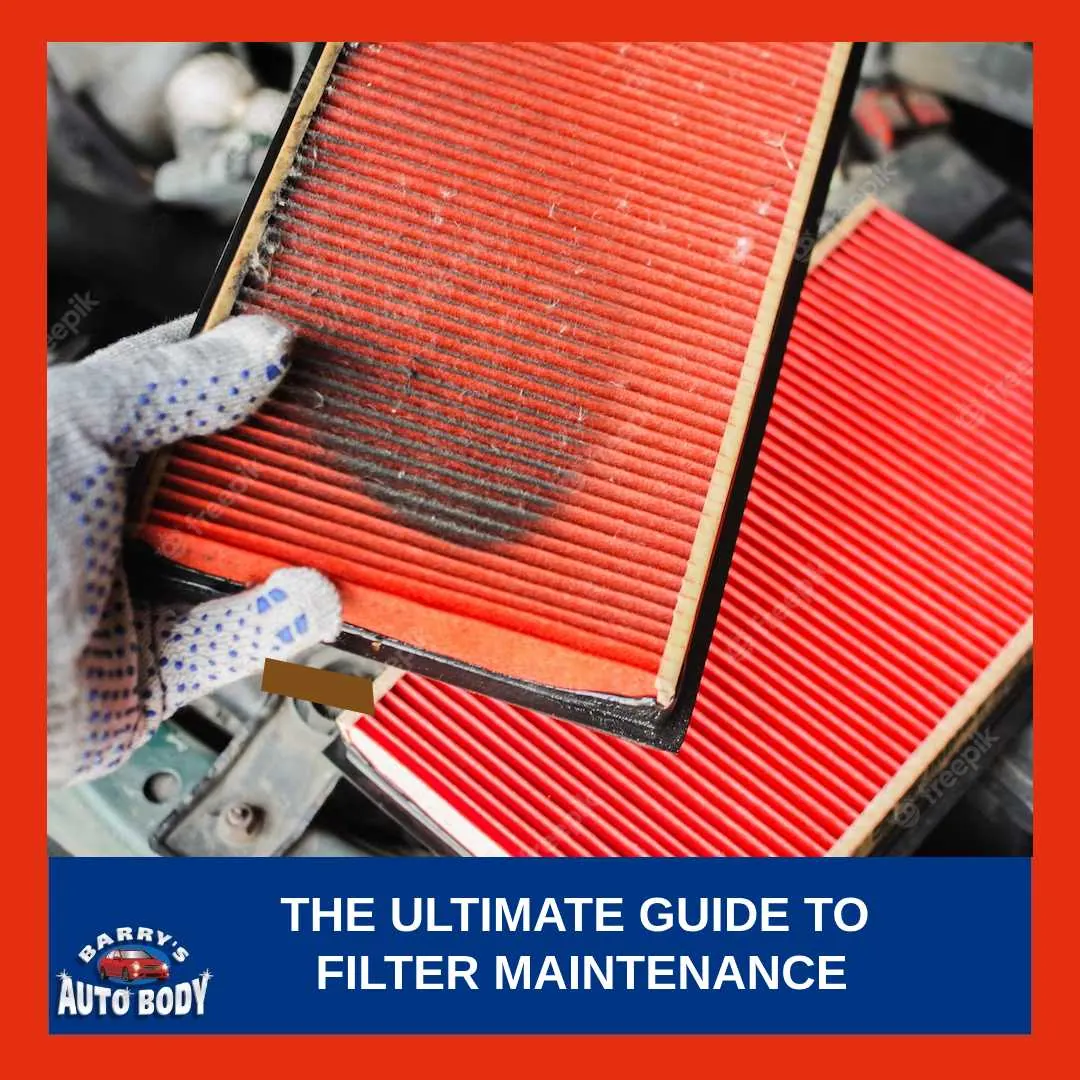Your vehicle is a complex machine with various components working together to provide a smooth and reliable driving experience. Among these components, filters play a crucial role in maintaining engine health, fuel efficiency, and overall vehicle performance. In this article, we’ll delve into the significance of filters in vehicle maintenance, exploring different types of filters, replacement intervals, signs of filter issues, maintenance options, and the benefits of regular filter care.
Types of Filters in a Vehicle
Air Filters:
Air filters are the gatekeepers to your engine’s health. They ensure that the air entering the engine is free from contaminants, such as dust, pollen, and debris. A clean air filter allows for proper combustion, which leads to efficient fuel consumption and optimal engine performance.
Oil Filters:
Oil filters are responsible for keeping the engine oil clean by removing impurities and contaminants. Clean oil is essential for proper lubrication, preventing friction and wear between engine components. Regular oil filter maintenance is crucial for extending the life of your engine.
Fuel Filters:
Fuel filters safeguard your engine by preventing dirt and debris from entering the fuel system. A clean fuel filter ensures that only clean fuel reaches the engine, promoting efficient combustion and preventing damage to fuel injectors and other components.
Cabin Air Filters:
Cabin air filters enhance the air quality inside your vehicle by trapping dust, pollen, and other particles. They contribute to a comfortable and healthy driving environment by filtering out allergens and pollutants before they enter the cabin.
Filter Replacement Intervals
Over time, filters become clogged with the contaminants they’ve captured. This can restrict airflow, decrease filter effectiveness, and potentially harm your vehicle’s performance. Manufacturer recommendations for filter replacement intervals vary, so it’s crucial to consult your vehicle’s manual. Air filters commonly need replacement every 15,000 to 30,000 miles, while oil filters often coincide with oil change intervals. Fuel and cabin air filters might have different replacement frequencies based on driving conditions.
Signs of Filter Issues
Recognizing signs of filter issues is essential for maintaining your vehicle’s performance. A clogged air filter can lead to reduced acceleration, decreased fuel efficiency, and a noticeable decrease in power. A compromised oil filter might cause engine noise, reduced oil pressure, and increased wear on engine components. A fuel filter issue can result in poor fuel efficiency, hesitation during acceleration, and engine misfires. A worn cabin air filter can lead to reduced airflow, unpleasant odors, and increased dust accumulation inside the vehicle.
DIY vs. Professional Filter Maintenance
When it comes to filter maintenance, you may wonder whether it’s better to tackle the task yourself or leave it to the professionals. Both options have their pros and cons.
If you’re a handy DIY enthusiast, maintaining your filters can save you some money. Replacing an air filter, for example, is usually a straightforward process that can be done with basic tools. Similarly, changing the cabin air filter is simple and can be done with minimal effort.
However, if you’re not confident in your abilities or prefer to leave it to the experts, professional filter maintenance might be the way to go. A trained technician will have the knowledge and experience to efficiently replace all types of filters in your vehicle, ensuring they are installed correctly and functioning optimally. Additionally, they can rinse your filters with low-pressure water to flush out any dirt or debris, improving their overall performance.
Moreover, professional filter maintenance often includes thoroughly inspecting your vehicle’s overall condition. This can help identify any other potential issues needing attention, saving you from future headaches and unexpected repairs.
Additionally, some filters may require specialized tools or equipment to access and replace, which you may not have readily available at home. By opting for professional maintenance, you can rest assured that the job will be done using the proper tools and techniques.
Ultimately, the choice between DIY and professional filter maintenance depends on your comfort level, time availability, and budget. DIY maintenance can be cost-effective if you’re confident in your skills and enjoy working on your vehicle. However, professional filter maintenance is worth considering if you prefer the peace of mind that comes with professional expertise and want to ensure optimal performance. Regular filter maintenance is essential for airflow, reducing odors, preventing dust accumulation, and maintaining good indoor air quality inside your vehicle. So, whichever option you choose, prioritize filter maintenance to keep your vehicle running smoothly.
Benefits of Regular Filter Maintenance
Regular filter maintenance offers a multitude of benefits that contribute to the longevity and efficiency of your vehicle:
- Enhanced Engine Performance: Clean air and proper lubrication provided by well-maintained filters lead to improved engine performance and responsiveness.
- Fuel Efficiency: A clean air filter and proper fuel delivery through a well-maintained fuel filter result in efficient combustion, maximizing fuel economy.
- Engine Longevity: Reduced wear on engine components due to clean oil and efficient filtration prolongs the engine’s lifespan.
- Clean Cabin Environment: Regular cabin air filter maintenance ensures a comfortable and healthy driving environment for you and your passengers.
Filters are unsung heroes in vehicle maintenance, diligently working to keep your engine running smoothly and your driving experience enjoyable. By understanding the various types of filters, adhering to replacement intervals, recognizing signs of filter issues, and considering professional maintenance when needed, you’ll be well-equipped to care for your vehicle’s filters effectively. Regular filter maintenance enhances vehicle performance and contributes to your vehicle’s safety and longevity. Remember, paying attention to your filters today can go a long way in ensuring a smoother, more efficient ride tomorrow.

